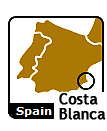Can you really trust the ABTA and ATOL symbol? - Mon 23rd January 2012
Can the ABTA, AITO and ATOL symbol be trusted?
Booking a holiday with any organisation where you see the ABTA, ATOL and AITO symbol is no guarantee that you're financially secure;
The Guardian's article End of Travel Protection expels that myth. In addition, ABTA was forced to withdraw from the Office of Fair Trading (OFT) Consumer Code of Approval Scheme, as reported by Travel Weekly - ABTA Criticised for Code of Conduct Violation.
The holidaymaker's financial protection ceased back in 2006, but the holidaymaker still remains mostly unaware, according to last year's Which report which found that travellers were said to have an "unwarranted trust" in the level of protection they were offered from associations such as ABTA, AITO and ATOL. http://www.travelweekly.co.uk/articles/1/1/1/38343
They went onto report that more than two thirds (67%) wrongly assumed that if a travel company went into administration, and was a member of one of the associations, their money would be safe.
Financial protection :
We all know that sending a cheque or making a bank transfer to an individual or business for your holiday, or for anything else prepaid, offers you no security whatsoever: but when it comes to seeing well known association symbols such as ABTA and ATOL appended to brochures or websites, that have historically suggested financial protection, ones defences can be down.
There is only one way to have 100% financial protection for your holiday villa, and that comes from using your credit card, provided the sum paid is not less than £100 (not a debit or charge card like Amex or Diners Club).
Protection and full refund comes from the 1974 Consumer Credit Act (section 75), as advised here at http://www.villaspain.co.uk/aboutus.php#financialsecurity and by Which consumer magazine here
Not only that but you get credited immediately from your card issuer, whilst they make their refund claim against the company. A claim can be brought within 6 years (5 in Scotland), although ideally should be claimed as soon as you are aware of the company going bust.
Other European countries' banks that issue credit cards also include the same protection for the public, which means protection for all Europeans too.
Some companies make a charge for credit use, so given the straightened times we are currently in, and the more frauds and cons there are about, it is wise to pay it.
Debit and Chargeback cards:
You should also be protected even if you used a Visa debit card or Chargeback card under the Chargeback scheme, which offers similar protection to section 75.
To make a claim with any card, customers must contact their card issuer, who then contacts the company's payment-processing bank to reclaim the money. This means that even if a company goes into liquidation it is possible to reclaim money, as the claim is made against a bank, not the company.
Sometimes card issuers misunderstand section 75 and Chargeback rules and refuse a claim. Anyone in this situation should argue their case. If all else fails contact the Financial Ombudsman.
What about getting compensation for other costs or losses?
Can you claim for other losses you have incurred as a result of the failure of the company. Yes, under section 75 you must be put back in the same financial position you would have been in if the breach had not occurred. So should an airline go bust and you have to buy replacement flights that cost more than the original ones, you can also claim for the additional cost of those flights.
ATOL:
Now ATOL you can trust, but one must be aware that it applies to the flight element and not necessarily the rest of the holiday package, so you need to check that all aspects of the package are protected. Also, to be aware that it is not a fictitious company displaying the ATOL symbol fraudulently, so a quick check of the members' ATOL CAA registration number can be done on page http://bit.ly/wGxf3c for you peace of mind.
Do note that some holidays, where the flight and accommodation are arranged or sold separately, and that is termed Dynamically Packaged, may not be ATOL protected.
Note too that booking a flight directly with any airline does not give you ATOL protection. You would think that the £2.50 per passenger charge that is levied to the tour operator by the Air Travel Trust Fund, and administered by the CAA, in the event a tour operator goes bust, could be included on your overall flight cost when booked direct, but no it isn't. Such a nominal sum allows you to finish your holiday and get a flight home, assuming you are abroad in the first place.
Some UK airlines do offer package holidays or flight-plus-accommodation or car hire combinations that include package holiday protection, but do require checking as to what protection you have.
What about Travel Insurance?
Some policies cover airline failure, usually by including Scheduled Airline Failure Insurance (SAFI). However, many policies don't include SAFI and some insurance providers exclude particular airlines, so you need to check what the policy does cover you for.
All in all, many holidaymakers believe they are financially protected in the event of insolvency, when they are not.
What to do?
Use a credit card in all holiday, flight or holiday accommodation cases (min £100), which guarantees that all the money you paid is refunded. Should the travel agent or airline go bust whist you are away the credit card firm will refund you too and are obliged to cover any loss you incur, as the contract has not been fulfilled.
In addition, do take out travel insurance that includes SAFI, which then covers you for a host of other situations.
Posted by Bruce Gibson







